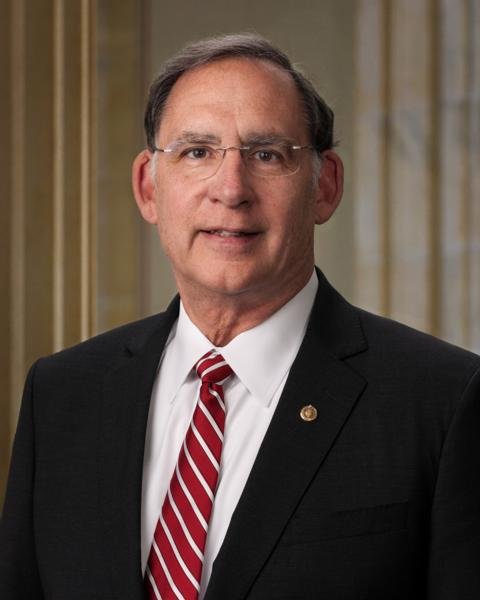WASHINGTON –– U.S. Senator John Boozman (R-AR), a senior member of the Senate Veterans’ Affairs Committee, joined Ranking Member Jerry Moran (R-KS) and Senators James Lankford (R-OK), Marsha Blackburn (R-TN), Kevin Cramer (R-ND) and Mike Braun (R-IN) to raise concerns to Department of Veterans Affairs (VA) Secretary Denis McDonough about how recently adopted Department of Housing and Urban Development (HUD) and Department of Agriculture (USDA) energy conservation policies could impact the cost of VA home loans for veterans.
On April 26, HUD and USDA announced they would be implementing the 2021 version of the International Energy Conservation Code (IECC) as the minimum energy efficiency standards for the financing of new single and multifamily homes.
“If adopted by the Department of Veterans Affairs, we are concerned that the revised standards could negatively affect the availability, affordability, and competitiveness of VA home loans for veterans,” wrote the senators. “Declining to finance any loans for new homes that do not meet these increased requirements, the agencies put accessible homeownership in jeopardy for thousands of veterans. Both rental and housing costs have risen at the fastest rates in decades, and any proposals that raise the cost of home building must be meticulously examined.”
“NAHB commends Sen. Moran for urging the VA Secretary to produce the department’s own analysis on how the 2021 IECC would affect housing affordability and the ability of veterans to obtain VA home loans,” said National Association of Home Builders Chairman Carl Harris. “Studies have shown that requiring new construction to adopt to the 2021 IECC can add as much as $31,000 to the price of a new home and that it would require up to 90 years for a home buyer to realize a payback on the added upfront cost of the home. Sen. Moran and the nation’s home builders are concerned that if VA were to adopt the 2021 IECC, it would prevent many of our nation’s veterans from purchasing a new home using a VA home loan.”
The full text of the letter can be found below.
Dear Secretary McDonough,
We write to raise significant concerns about the Department of Housing and Urban Development’s (HUD) and Department of Agriculture’s (USDA) recently adopted revised energy standards for newly constructed homes insured or guaranteed by their respective Departments.
We are particularly concerned with the impact of the agencies’ final determination, implementing the 2021 version of the International Energy Conservation Code (IECC), on veteran homebuyers. By only financing new homes if they are built to the 2021 IECC standards, HUD and USDA describe the potential for a market where “new construction for Federal Housing Administration borrowers would decline.” If adopted by the Department of Veterans Affairs (VA), we are concerned that the revised standards could negatively affect the availability, affordability, and competitiveness of VA home loans for veterans.
Recent estimates indicate that even a one thousand dollar increase in home prices would price over one hundred thousand Americans out of the housing market. As mortgage rates hover around seven percent, the revised standards could lead prospective homeowners to pay tens of thousands of dollars more over the course of a 30-year mortgage. Included in the Regulatory Impact Analysis, HUD and USDA rightly recognize that “lower-income households are less willing than higher-income ones to accept longer payback periods for energy-efficient investments.” Declining to finance any loans for new homes that do not meet these increased requirements, the agencies put accessible homeownership in jeopardy for thousands of veterans.
Both rental and housing costs have risen at the fastest rates in decades, and any proposals that raise the cost of home building must be meticulously examined. Additionally, it is our duty to ensure that veterans have robust access to VA-financed home loans. In turn, we respectfully call your attention to a directive included in the Senate’s Fiscal Year 2025 Military Construction and Veterans Affairs Appropriations Committee Report on the revised energy standards and look forward to VA’s evaluation of how adoption would impact costs for veteran homebuyers, including the availability, affordability, and competitiveness of VA home loans.






















